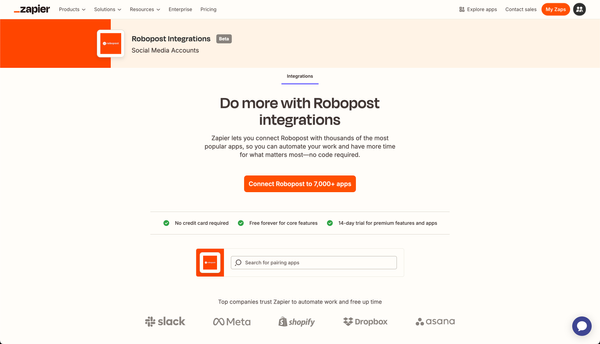Social Media Management: The Power of Tools and Automation
Optimize your social media with tools & automation for better engagement, efficiency, and ROI. Streamline strategy and maximize impact.

Social media is key for connecting with audiences and building a brand. With the help of specialized tools and automation, managing social media has shifted from being a time-consuming job to a valuable strategy for businesses. This article explores how these innovations not only save time but also make social media campaigns more effective, leading to a better return on investment.
Key Takeaways
- Social media management tools bring all online interactions into one place and automate repetitive tasks, making social media strategies more efficient and effective.
- Planning content, organizing posts, and analyzing performance data help improve social media efforts and boost a brand's online presence.
- Collaboration tools keep teams in sync, allowing for real-time communication, feedback, and easier management across different platforms.
The Role of Social Media Management Tools
Centralizing Digital Engagement
Centralizing digital engagement with social media management tools is like directing a symphony of online interactions. By bringing all notifications, messages, and mentions into one dashboard, teams can work more efficiently. This setup not only saves time but also improves how businesses interact with customers.
Key features that make this possible include:
- Unified Inbox: A central place for all social media messages.
- Filtering and Tagging: To help prioritize and organize conversations.
- Client Bios: Quick access to customer details.
- Team Collaboration: Assign tasks and share notes easily.
Automating Routine Tasks
Automating routine tasks for social media management is a big advantage. It turns repetitive work into processes that run automatically, giving you more time for creative and strategic tasks. For example, you can automate things like scheduling posts, filtering spam, and managing follow-up messages.
Here’s how automation helps with common tasks:
- Scheduling Posts: Plan your content calendar, and automation tools will post it at the best times for engagement.
- Audience Engagement: Bots can handle initial replies to comments and direct messages, while you take over for more complex conversations.
- Analytics Reports: Automatically create reports on how posts are performing and who your audience is.
Advanced automation includes smart responses triggered by specific actions, keeping your social media presence active and responsive, even when you’re offline. Tools like Robopost efficiently handle these tasks, from creating videos and carousels to writing posts and selecting images.
Streamlining Your Social Media Strategy
Planning with Precision
Planning isn’t just about scheduling posts—it’s about creating a strategy that connects with your audience. A well-organized social media calendar helps you stay on track with your marketing goals while being flexible enough to adapt to changes in the digital world.
Here’s a quick guide to making your planning both smart and adaptable:
- Check your calendar weekly to stay updated with trends.
- Keep extra evergreen content ready for unexpected situations.
- Schedule posts, but check daily to make sure they’re still relevant.
Planning is important, but over-scheduling can be a problem. Pay attention to your audience’s needs and be ready to make changes when needed. The goal is to engage, not just push out content.
Content Curation and Scheduling
Organizing and scheduling content is key to keeping a consistent and engaging online presence on social media. Using tools that offer features like queue scheduling, bulk uploads, and content libraries helps brands maintain a steady stream of high-quality content without needing constant manual effort.
- Scheduling and Publishing: Tools like Post Planner automate posting with features like queue scheduling and recycling older posts.
- Content Library: A central storage space allows you to easily reuse digital assets for different campaigns.
- Bulk Scheduling: Scheduling multiple posts at once saves time and helps with strategic content planning.
Metrics and Performance Analysis
Understanding how well your social media strategy works is crucial, and metrics help guide you. Social media metrics are key numbers that show how effective your marketing efforts are, and they help you measure success.
Using a good analytics tool is essential, not just optional. It gives you insights into how your audience behaves and how your content performs. By tracking and learning from these numbers, you can continually improve your strategy.
Here are some important metrics to watch:
- Conversion Rate: The percentage of people who take the action you want (like making a purchase or signing up).
- Engagement: How often people like, comment, share, or interact with your content.
- Reach: How many unique people see your posts.
- Click-Through Rate (CTR): The percentage of people who click a link after seeing your post, email, or ad.
These metrics are just the beginning. Choose a tool that makes it easy to schedule reports or download branded PDFs so you can dive deeper into the data.
Enhancing Collaboration Across Platforms
Synchronized Team Efforts
Working together as a team is crucial for keeping a consistent brand voice and strategy. By picking the right tool to manage social media accounts, teams can schedule posts across different platforms and make sure the messaging stays the same. This isn’t just about avoiding confusion; it’s about using everyone’s ideas for a common goal.
Here’s what a typical team process might look like:
- Planning: Team members help create a shared content calendar.
- Creation: Drafts are shared and improved together.
- Approval: Decision-makers easily approve content.
- Publishing: Content is scheduled and posted on multiple platforms.
- Analysis: The team reviews and discusses performance data together.
Real-Time Communication and Feedback
Instant communication and feedback are key to keeping an active and responsive online presence. Automated alerts and notifications are important here, making sure that team members and clients know about any updates or interactions right away. This quick response not only improves teamwork but also helps in making decisions and solving problems faster.
Social media management tools also provide features that support direct communication with clients, like getting approvals for posts and having built-in feedback systems. These tools keep everyone on the same page, creating a productive and client-friendly environment. Here are some benefits:
- Instant Interactions
- Personalized Suggestions
- Simplified Client Communication
By using social media tools effectively, creators and businesses can save time, automate tasks, and gather detailed analytics, leading to a more strategic and impactful online presence.
Unified Multi-Platform Management
Managing everything from one place isn't just helpful; it's essential for a successful strategy. By using tools that bring all social media activities together, businesses can maintain a consistent brand voice and strategy across different platforms. This approach allows for quick adjustments and a more active online presence.
Here are some benefits:
- Scheduling Across Platforms: Ensures that content is delivered consistently.
- Centralized Communication Inbox: Helps teams respond to messages quickly.
- Detailed Analytics: Gives insights that support better decision-making.
Using a unified management system simplifies the social media process, making better use of time and resources. It removes the hassle of managing multiple accounts separately and helps teams provide a smooth brand experience for their audience.
Conclusion
Using management tools and automation isn't just a nice-to-have; it's essential for being efficient and growing your presence. These tools help marketers schedule content and analyze how campaigns are performing, allowing them to improve their online presence and get the best return on investment. The future of social media management will rely heavily on AI-driven automation, giving brands a competitive advantage in the busy digital landscape. As we've seen, the right technology can simplify complex social media strategies into effective campaigns. Adopting these innovations is crucial for staying ahead and making sure that every post, tweet, or update supports your brand's overall online story.
